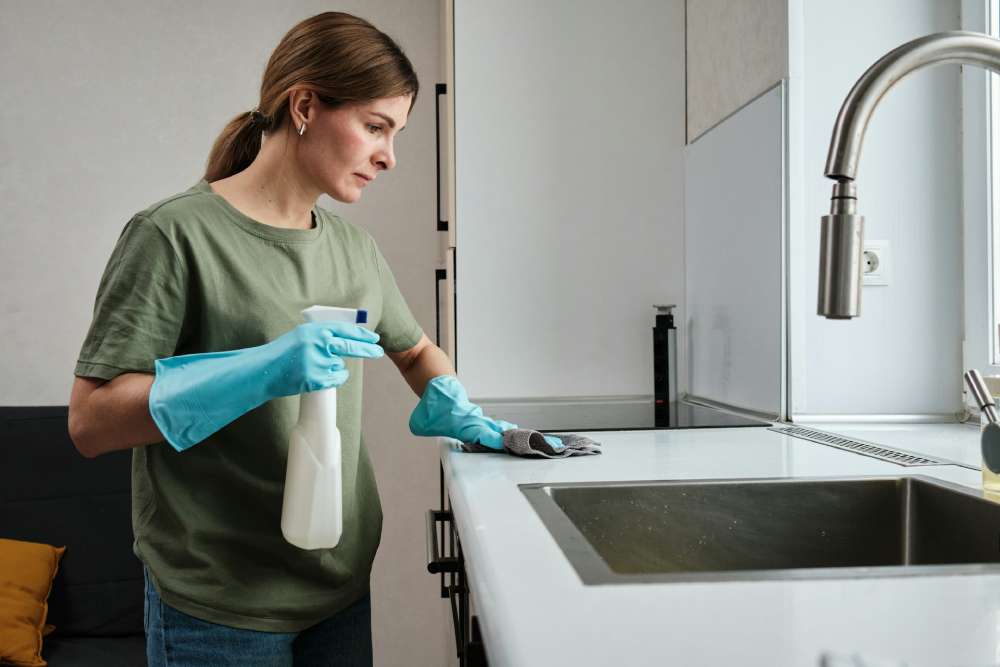
Commercial Kitchen Hygiene 101 – Importance and Best Practices
Harmful bacteria can grow in food service establishments if simple kitchen hygiene practices aren’t followed. Cleaning and sanitizing counters, sinks, and equipment should be done regularly to control harmful pathogens.
Proper hand hygiene is also essential. Raw foods often carry bacteria that can quickly transfer to hands and contaminate other surfaces. Maintaining good hygiene habits, such as washing your hands with soap and water, is essential to stop dangerous bacteria from spreading. Wash hands frequently throughout food preparation and before and after handling cooked foods.
Clean and Sanitize
In any restaurant, whether a small mom-and-pop bakery or a three-star gourmet eatery, stringent Sanitizing and commercial kitchen cleaning procedures are essential to maintaining kitchen hygiene. Local health inspectors and federal agencies have guidelines that restaurants must adhere to. These include a regular schedule of cleaning and disinfecting that ensures everything from the refrigerator and freezer to the floors and equipment is clean and free from harmful bacteria.
In addition to keeping surfaces clean and sanitized, staff should wash their hands frequently throughout food preparation to prevent the transfer of bacteria from raw to cooked foods. Kitchens should also have easy access to hand sanitizer for employees, especially after touching contaminated areas or equipment.
Cleaning and sanitizing are different methods but vital to a commercial kitchen. Sanitizing removes pathogens from an invisible surface to the eye, while cleaning eliminates visible debris. To sanitize, a kitchen should clean the visual debris area, rinse it with potable water, and use a no-rinse spray or multi-surface wipe.
Educate Staff
Proper kitchen hygiene during food preparation is essential to everyone’s health. Unwashed hands quickly spread food-borne bacteria, so all restaurant staff must wash their hands throughout the day and before and after handling food. They should also sanitize their fingernails and keep uniforms clean and appropriate for their work environment.
Ensure all employees know your commercial hood cleaning and sanitizing procedures to avoid contamination. To ensure they adhere to the most recent good hygiene practices, senior personnel should routinely attend refresher classes, and all new hires must undergo a comprehensive training program.
Establishing a culture of cleanliness is one of the best ways to reduce the risk of contamination and outbreaks. By committing to proper sanitation, you’ll be able to offer your guests delicious food and excellent service. It will help to build your reputation and keep customers happy.
Ensure Personal Hygiene
When you run a restaurant, impeccable food and customer service are essential, but so is keeping your kitchen hygienic. By implementing these measures, you safeguard your customers’ health and well-being and bolster your establishment’s positive image. It’s a win-win situation that ensures your customers’ safety and your venue’s reputation.
Harmful bacteria can be transferred to foods by touching contaminated hands, surfaces, or clothing. To ensure food safety, you must train your food handlers to maintain good hygiene practices such as frequent and thorough hand washing.
Emphasize the importance of hand washing, especially after handling raw meat or visiting the restroom. Doing so ensures that your customers are always served safe and healthy food. Wearing disposable gloves when handling food can also reduce contamination by preventing the spread of germs. Keep fingernails short and clean, and remove any jewelry that could come in contact with food.
It’s also essential for all food handlers to wear clean uniforms, aprons, and hair nets when working in the kitchen. It helps reduce the transfer of germs from dirty clothing to food and vice versa. Keep a supply of clean aprons and hats on hand so that any that become dirty can be replaced immediately.
Maintain a Clean Environment
Harmful bacteria thrive in dirty and unhygienic environments, contaminating food and leading to food poisoning or other illnesses. Kitchen surfaces, utensils, and equipment can be regularly cleaned and sanitized to help eliminate these bacteria and lower the chance of contamination.
The staff must be well-versed in the correct methods of handwashing and the usage of personal protective equipment to prevent the spread of germs effectively. Additionally, it’s critical to store food according to the First-In, First-Out (FIFO) principle and to utilize color-coded cutting boards and cutlery for different types of food.
Maintaining a clean environment isn’t just an option – it’s essential for commercial kitchens that serve the public and must meet strict food safety regulations. Following these smart tips ensures your kitchen stays hygienic from breakfast to dinner and beyond. The results will be fewer messy cooks and a safer customer dining experience.
